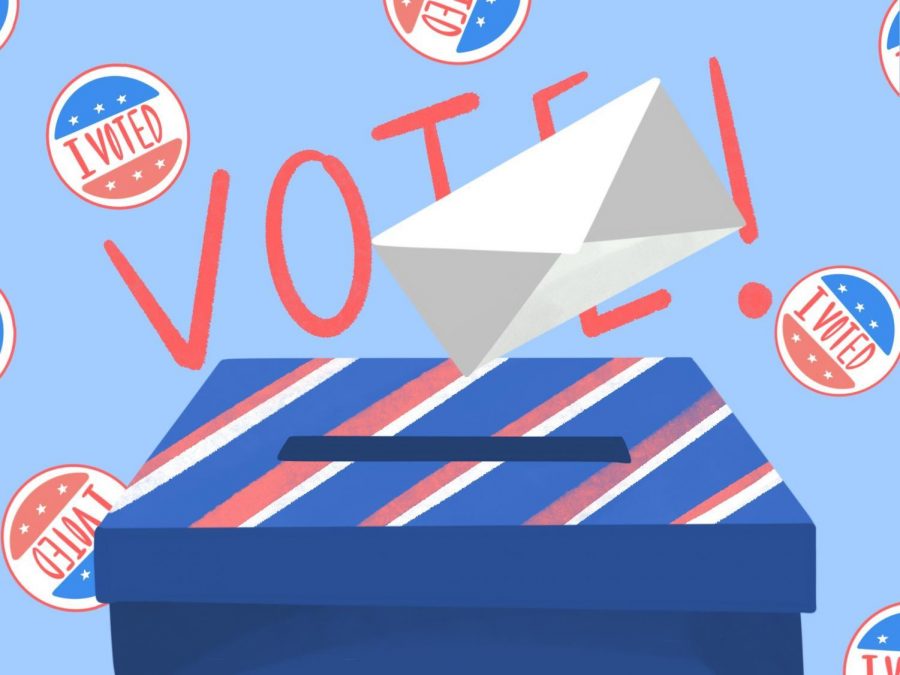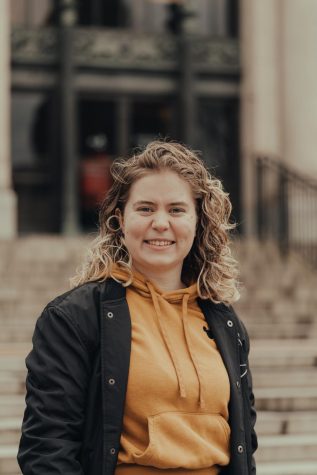The truth behind voting myths
October 27, 2020
Editor’s Note: This story is a part of the 2020 Elections Issue. The Baro has put together this issue to inform the Oregon State University and greater Corvallis, Ore. communities about the 2020 Elections. This issue will dispel voting myths and include information on local elections, voting methods and tips, candidate profiles, and more.
Along with the rapidly approaching election comes many myths about voting, but while many of these myths have nuggets of truth to them, they’re not as true as most people think.
One of the most common voting myths is voter ID fraud. This occurs when someone creates a fake ID to vote, creates a fake ID to vote twice, or when they’re voting for someone else. There’s a lot of controversy surrounding this topic because of the U.S. government’s history in using voter IDs to suppress certain votes.
“The concept of proving you are a legal citizen of the state is a valid argument to make. We do want actual citizens voting. That makes sense,” Tony Modarelli, a political science student at Oregon State University said. “I understand though that there are those niche areas where people can’t afford it or there are certain circumstances in local towns, I can understand that. But I don’t think the solution is just to do away with voter ID altogether.”
While being a citizen of the United States is important to vote and voter ID fraud is a good issue to acknowledge, it’s less of a problem than it’s made out to be. Heritage Foundation, a conservative think tank based in Washington D.C., is the biggest promoter of this myth but, through studies, it has been proven to be relatively insignificant.
“They collect all data on any type of voting fraud cases so I think they have about 1,200 of over 500 million votes,” Christopher Stout, associate professor of political science at OSU said. There’s almost no probability that it would change any election, since actual prosecuted voter fraud is 0.0000001% of actual voting, so it’s extremely low.
Another voting myth that’s perhaps not as common but still important is the idea that someone’s signature on their ballot needs to exactly match their signature on their driver’s license, or else the ballot will be thrown out. Since this method is used to ensure that the person filling out the ballot is the right person, this myth is more true than not.
“They have some sort of computer program that flags things that look off. It doesn’t have to look the exact same but if it’s 100% different or really different, then the computer program’s going to say ‘hey that doesn’t match what we have,’” Stout said. “Most states have it so that there’s actual humans who then look at it and they look at the two things to see if there’s a match and if the computer messed up or not. And if it looks like the two signatures are totally different, then they’ll toss it.”
However, if Oregon citizens are concerned about their ballot being counted, they can visit My Vote through the Secretary of State’s office to check the status of their ballot. And if their ballot was rejected, Stout said that a petition can be filed to reverse that decision.
Many voters additionally have the idea that their vote doesn’t matter, especially because of the electoral college. In its history, Oregon has almost always, as a state, voted Democrat in presidential elections. For this reason, Republicans may feel that their voice isn’t being heard, and Democrats living in majority Republican states may have the same problem. However, the presidential election isn’t the only election to vote in, nor is it even the most important one.
“Even in our district here in Corvallis, there’s a super competitive house race between Peter Defazio and Alex Skarlatos,” Stout said. “And a few votes can swing that election.”
While many people may not feel that their voices are being heard on a national level, the state and county elections are a way for individual citizens to feel that their votes actually matter.
“Even though they don’t get the same level of attention as presidential elections, state and local elections can have a significant impact on people’s lives,” David Bernell, associate professor in the school of public policy at OSU said via email.
In the end, it’s important that every citizen is voting in elections, even if they don’t feel as if their voice matters, because it’s not only a right and responsibility but also the best way to enact change in the country.
“I think every vote counts,” Bernell said. “Voting is a responsibility that citizens should take seriously and embrace. People all over the world fight and die for the right to vote. Taking that right for granted is a mistake. In addition, decisions are made by people who ‘show up.’ So if you don’t vote, somebody else will make decisions for you, and you might not like what they decide.”











































































































